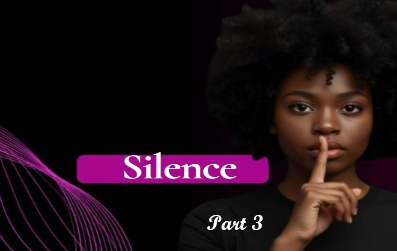
Silence Part 3
Good morning brethren, I would like to share on the topic “SILENCE – PART 3.” In Part One, I mentioned that this topic was sensitive. I defined silence as the absence of sound, speech, or noise. I also explained that silence may refer to physical quietness or an inner stillness of the mind and heart, and that silence is not weakness. In Part Two, I mentioned that there were three main occasions where silence is used in the Bible - silence as a spiritual weapon, silence as a physical weapon and silence as an emotional weapon. In this part, I would like to focus on the benefits of silence as opposed to distractions. In our world today—filled with noise, activity, and constant busyness—the discipline of silence has become rare. Yet silence remains a powerful spiritual tool. In Scripture, silence is not just the absence of sound; it is a sacred posture that opens the heart to God’s voice. Distractions, on the other hand, often pull the believer away from divine purpose and clarity. Below are a few benefits of silence contrasted with the dangers of distraction.
Silence positions us to listen, it sharpens our spiritual hearing and helps believers discern God’s direction, while distractions drown out God’s voice. In 1 Kings 19:11–12, when Elijah was at Horeb, God was not in the wind, the earthquake, or the fire—but in the still small voice. We encounter God’s guidance only when the noise ceases (Psalm 46:10). Silence restores the soul while distractions create inner turmoil and emotional overload. Restoration happens in calmness, not chaos. Psalm 23:2–3 says, “He leads me beside still waters; He restores my soul.” Isaiah 30:15 adds, “In quietness and in trust shall be your strength.” Strength is birthed from quiet trust in God. Silence becomes a spiritual reset that brings deep peace. Silence nurtures reflection and wisdom, a distracted mind reacts impulsively, but a quiet mind reflects wisely. Proverbs 17:27–28 tells us that a person of understanding “restrains his words,” and even one who remains silent appears wise. Silence deepens intimacy with God, silence strengthens prayer, while distractions weaken prayer. Jesus often withdrew from the crowds to lonely places (Luke 5:16). He modeled a communion with God that flourished in retreat, not in noise. Silence produces spiritual maturity and discipline, while distractions scatter the mind, silence cultivates emotional restraint and self-control. The Psalmist prayed in Psalm 141:3, “Set a guard over my mouth.” Learning quietness is part of mastering the tongue. Silence intensifies awareness of God’s presence, it awakens sensitivity to the Spirit’s leading, while distractions dull it. Consider the calling of Samuel in 1 Samuel 3—he heard God’s voice in the stillness of the temple. Silence helps us avoid sin, many sins, especially those fueled by haste, anxiety, or misplaced priorities are born out of distraction. Proverbs 10:19 warns, “When words are many, sin is not absent.” Silence restrains us from hasty actions and careless words.
In conclusion, biblical silence is not emptiness but intentional stillness that invites God’s presence, wisdom, and peace. Distractions pull believers away from what truly matters, but silence draws them closer to God. As believers embrace the discipline of silence as a spiritual weapon, it becomes a doorway to clarity, strength, and divine intimacy. Service is at 10:30am and worker’s meeting is at 10:00am. God’s blessings — Mike

